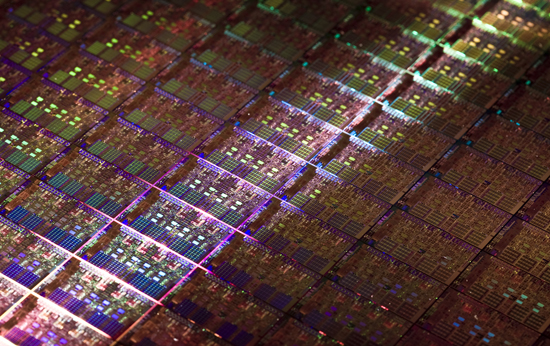Intel Core i5 / i7 Naming Confusions
Intel has complicated things a little when it comes to
branding, so it's important to clarify exactly what's being talked about when
people throw around terms like Core i5, "Nehalem", and "Lynnfield".
|
CPU
Socket
|
Intel 'Nehalem' Family
Processor Breakdown |
| Processor Model |
Clock Speed
(GHz) |
Max Turbo Frequency
(GHz) |
Cores/Threads |
L3 Cache
(MB) |
Thermal Design Power
(watts) |
Price
($USD) |
|
LGA1366
Socket |
Intel 'Bloomfield' Platform (X58 Express Chipset),
Triple-channel, DDR3-1066, socket 1366 |
|
Intel Core i7 975 |
3.3 GHz |
up to 3.60GHz (single Core) |
4/8
(hyperthreading) |
8MB |
130W |
$999 |
|
Intel Core i7 960 |
3.2 GHz |
up to 3.46GHz (single Core) |
4/8
(hyperthreading) |
8MB |
130W |
$562 |
|
|
Intel Core i7 920 |
2.66 GHz |
up to 3.00GHz (single Core) |
4/8
(hyperthreading) |
8MB |
130W |
$284 |
|
LGA1156
Socket |
Intel
'Lynnfield' Platform (P55 Express Chipset), Dual-channel, DDR3-1333,
socket 1156 |
|
Intel Core i7 870 |
2.93 GHz |
up to 3.60 GHz (single core) |
4/8
(hyperthreading) |
8MB |
95W |
$562 |
|
Intel Core i7 860 |
2.80 GHz |
up to 3.46GHz (single core) |
4/8
(hyperthreading) |
8MB |
95W |
$284 |
|
Intel Core i5 750 |
2.66 GHz |
up to 3.20GHz (single core) |
4/4
(none) |
8MB |
95W |
$196 |
All of the processors in the above chart are part of
Intel's "Nehalem" family of processors, which means their processing cores are
largely built on the same architecture, although they have some very different
implementations and interfaces.
 Intel has split the "Nehalem" family into
three different segments: the Core i7 900-series, the Core i7 800-series, and
the Core i5-700 series. The Core i7 900-series you're already familiar with:
they were the first Core i7 chips, launched in November 2008. These processors
are native to socket 1366, require triple-channel DDR3 memory and use Intel's
high-end X58 Express chipset. Intel's codename for this processor/motherboard
platform is "Bloomfield".
Intel has split the "Nehalem" family into
three different segments: the Core i7 900-series, the Core i7 800-series, and
the Core i5-700 series. The Core i7 900-series you're already familiar with:
they were the first Core i7 chips, launched in November 2008. These processors
are native to socket 1366, require triple-channel DDR3 memory and use Intel's
high-end X58 Express chipset. Intel's codename for this processor/motherboard
platform is "Bloomfield".
The Core i7-800 series actually don't have much in
common with the Intel Core i7 900 series at all. The socket has changed from a
1366-pin Land Grid Array (LGA-1366) to a 1156-pin design. The Intel Core i7
800-series processors have an on-board memory controller like the Core i7
900-series, however they also include a PCI Express controller. The Core i7
800-series also uses dual-channel memory rather than triple-channel memory.
Intel's Core i7 800-series processors are designed for the Intel P55 Express
chipset, and the entire processor and motherboard platform has been code named
"Lynnfield".
Intel's Core i5 700-series is very similar to the Core
i7 800-series. Both series of processors use the Intel P55 chipset, have
on-board PCI Express and memory controllers, and are built for socket 1156.
The only real difference between the two lines of
processors is that the Core i5 series has no support for HyperThreading, while
all Core i7 processors do. HyperThreading allows a single physical processing
core execute two threads simultaneously, which helps with massively parallel
processing. The Core i5 700-series platform is also part of the "Lynnfield"
code name.

If you're picking up one of the Core i7 800-series or
Core i5 700-series of processors, remember that this change in socket has also
meant that neither your old socket 775 or newer socket 1366 heatsink/fan cooler
will work with Intel's socket 1156 processors or motherboards. Those who adopt
Core i7 800-series and Core i5 700-series processors will need all new coolers
or at least mounting adapters to attach their high-performance, third-party
coolers.
PCSTATS discusses Intel's Lynnfield architecture
next....
